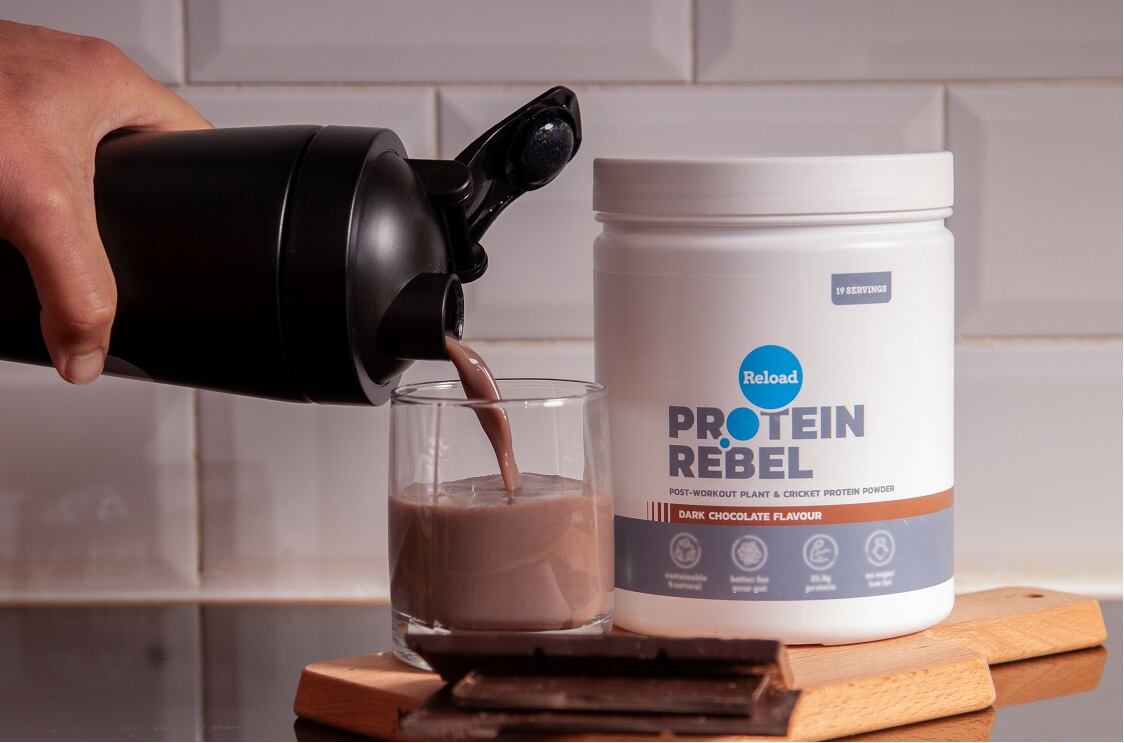After building an appetite for insects while working in national parks in Zambia, former marketing consultant Tim Boote is hoping to bring the nutritional and environmental benefits of cricket protein to the UK sports nutrition sector with his locally-sourced plant and cricket protein powders.
“I’ve always been very interested in the environment, sustainability and wildlife. I worked in a national park in Zambia in 2009 and 2010 which is where I first came across people eating insects.
"At the time I thought it was bizarre but when I tasted them for myself and realised their low environmental impact, I thought it was a really great food source. I could never see it entering the Western culture but things have come such a long way since then.”
At the beginning of 2019, after working as a marketing consultant for a number of food and drink brands Boote started to wonder ‘what’s it all about’ and felt it was time to turn his passion into a business.
"I thought now the

European market seems to be ready for new food sources which are better for the planet. There have been a few companies that have started selling insect-based powders or snacks but their marketing has been focused on the fact they include insects, and it becomes like a gimmick rather than a benefit.
“I don’t think that’s the best way to get the mass market more interested in this new excellent source of protein.”
Boote argues there are three key elements to giving insect sourced protein a mass market appeal: mastering the flavour and texture, providing the right nutritional profile, and using genuinely sustainable ingredients and packaging.
“We have mastered how to make crickets smooth and tasty. Not all brands have managed this as often they still have a 'gritty' taste. The main challenge with crickets is that they're hydrophobic, meaning they repel water, so they are naturally hard to mix. This is a major challenge when using them as an ingredient in a protein powder!
"Also, insects naturally have a very savoury, nutty taste which isn’t bad but it isn’t the flavour people generally want or expect from a protein powder.”
After over a year of product formulation, Rebel Protein launched in August with three products - Reload, Replace, and Recover - each available in chocolate or banana flavour.
The key differentiating factor for the brand is that it sources its cricket powder from the UK's only commercial cricket farm, which opened in May this year.
Boote explains that this is a key step in making it a truly eco-friendly brand.
“Most companies that want to source cricket powder will ship it over from Thailand, or there have been a few farms opening across Europe more recently, but we wanted to keep out carbon footprint to an absolute minimum so it would be pointless to be shipping ingredients in from other countries.”
Looking to the future, Boote hopes to extend his range to open consumers’ eyes to a wider range of alternative protein sources, including other insects and algae, and he would like to tap into technology which creates protein from air.
Cricket nutrition
Boote describes crickets as a 'superfood', as they pack a powerful nutritional punch as they are:
He adds: "Crickets naturally have between 65% to 69% content of complete protein, meaning they contain all the essential amino acids that the body cannot produce. This means crickets have a protein content higher than chicken, beef, pork or salmon."
As explained on the Rebel Protein website, crickets are also high in iron - haem iron and non-haem iron. Haem iron is only present in animals (including insects) and is more easily absorbed than non-haem iron. What’s more crickets have 168mg of iron per 100g - more than spinach (3.6mg per 100g).
The creepy crawlies are also stacked full of Vitamin B12 with 23μg per 100g - more than beef (6.2μg per 100g). This is an important vitamin for energy that can be hard to find in some diets as it is mostly only available in animal products.
Researchers have found that crickets have five times as much antioxidant capacity as orange juice. Antioxidant activity is the measurement of free radicals scavenging ability to prevent, protect or delay against oxidisation in other compounds.
Crickets are also a good source of the prebiotic fibre chitin and are good sources of many vitamins and minerals including zinc, copper, magnesium and manganese.


